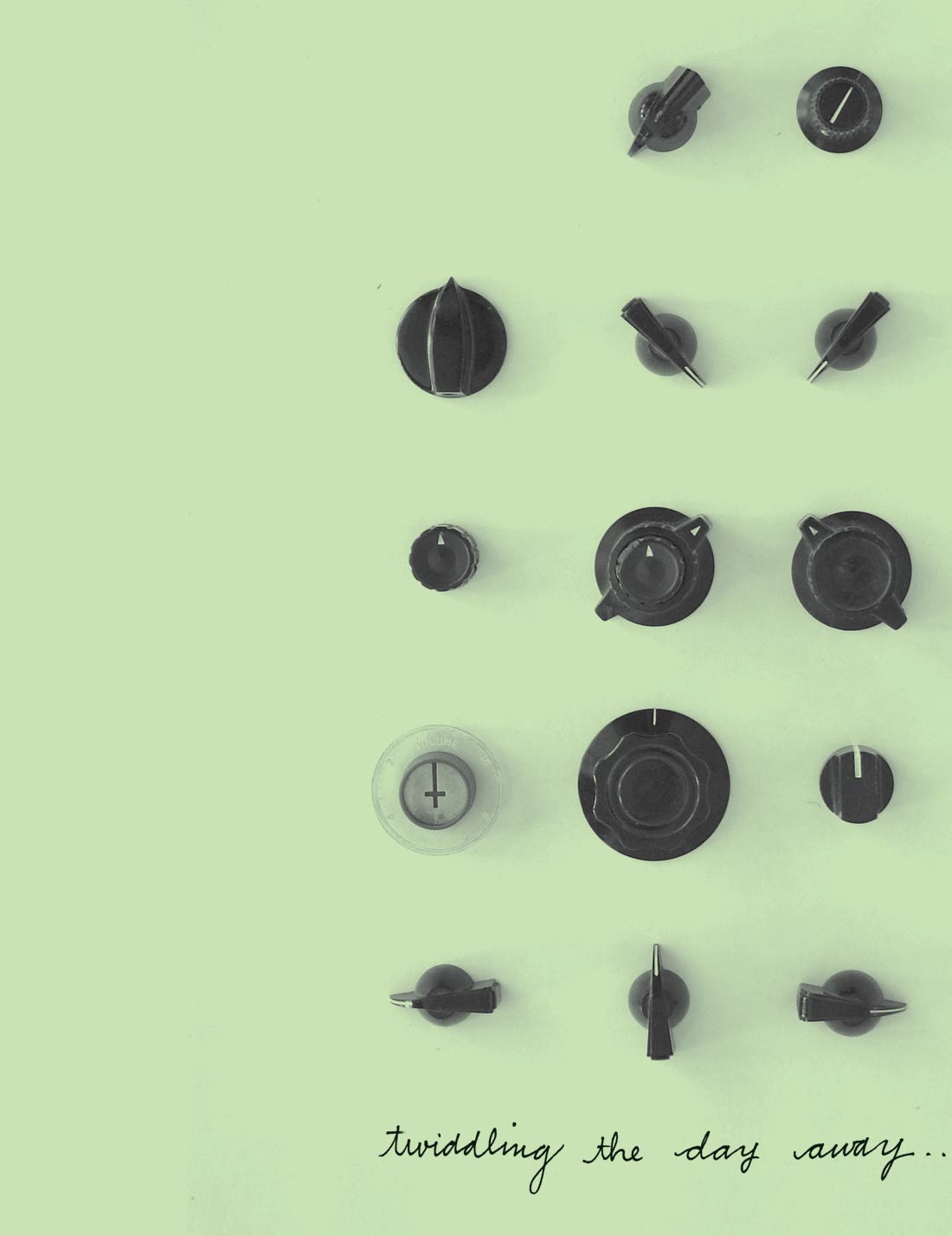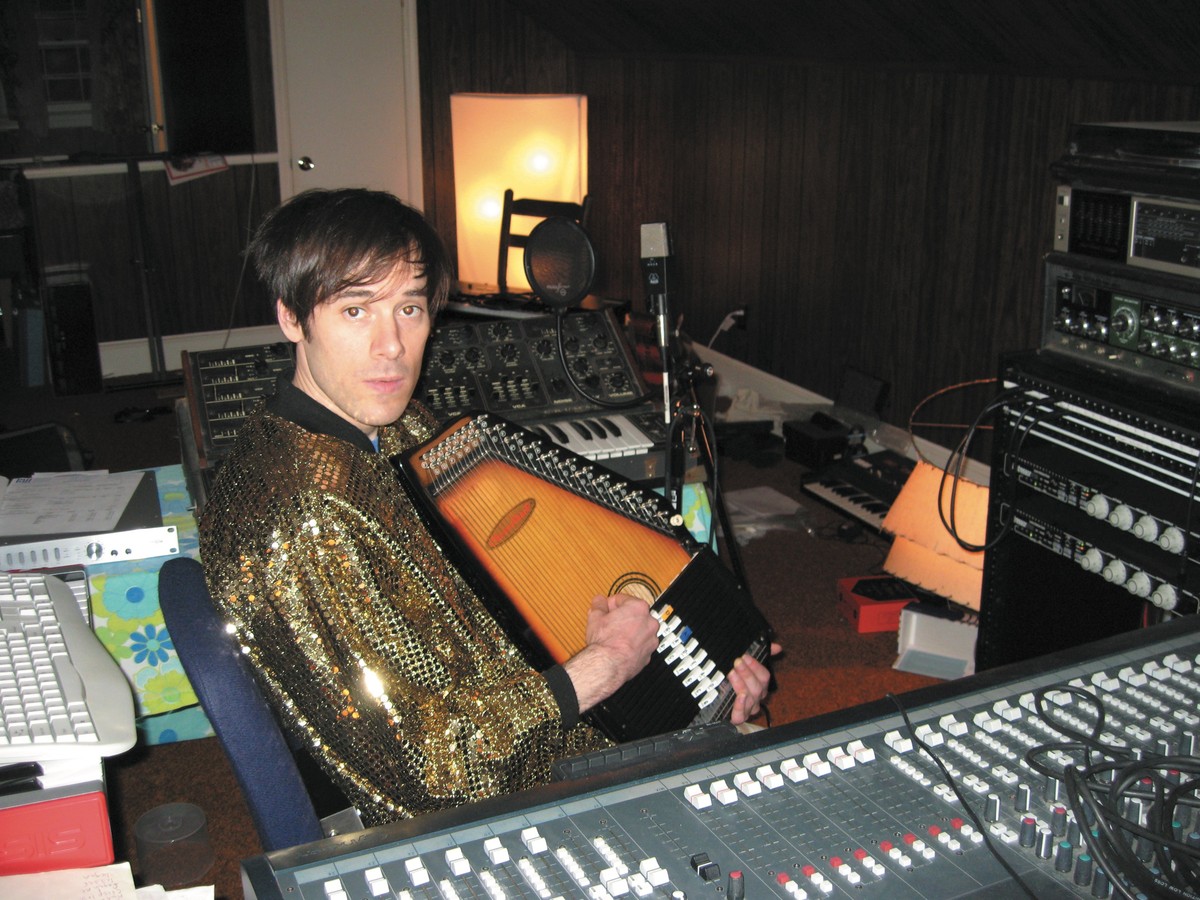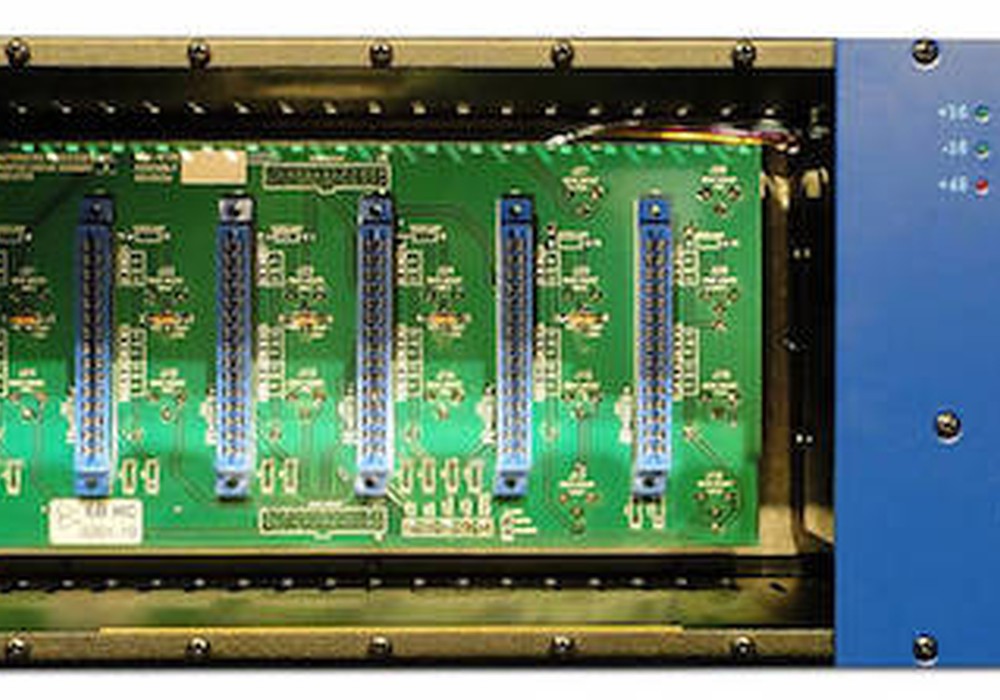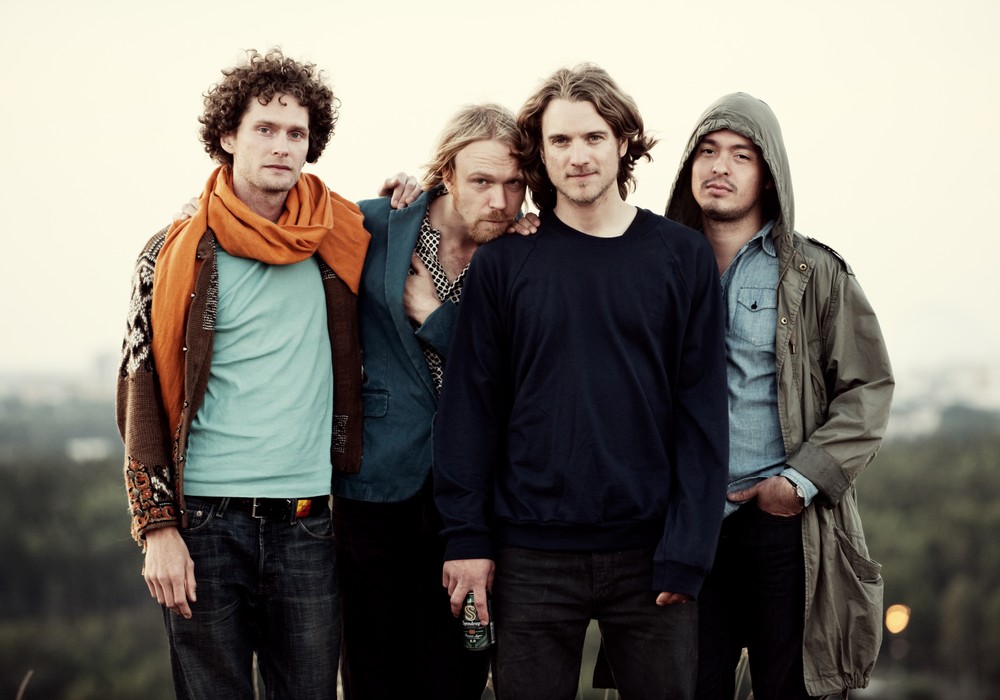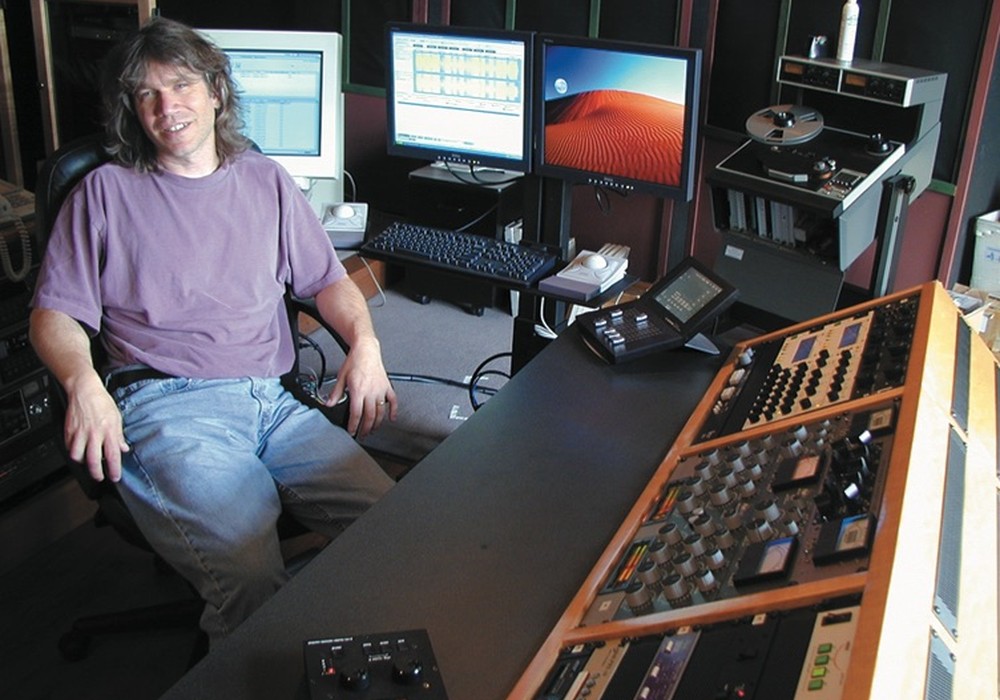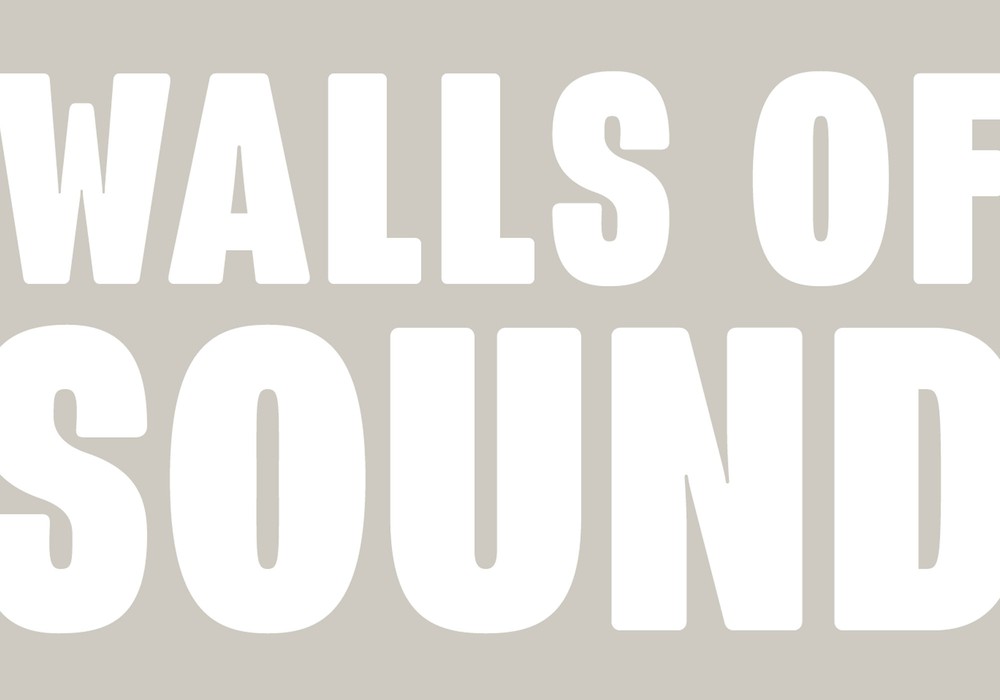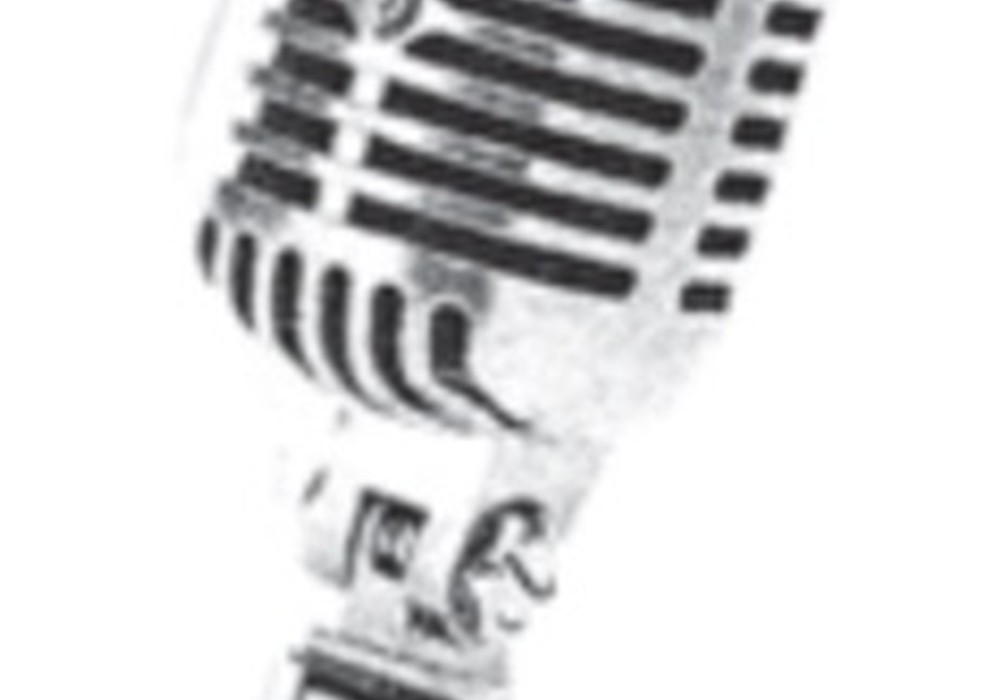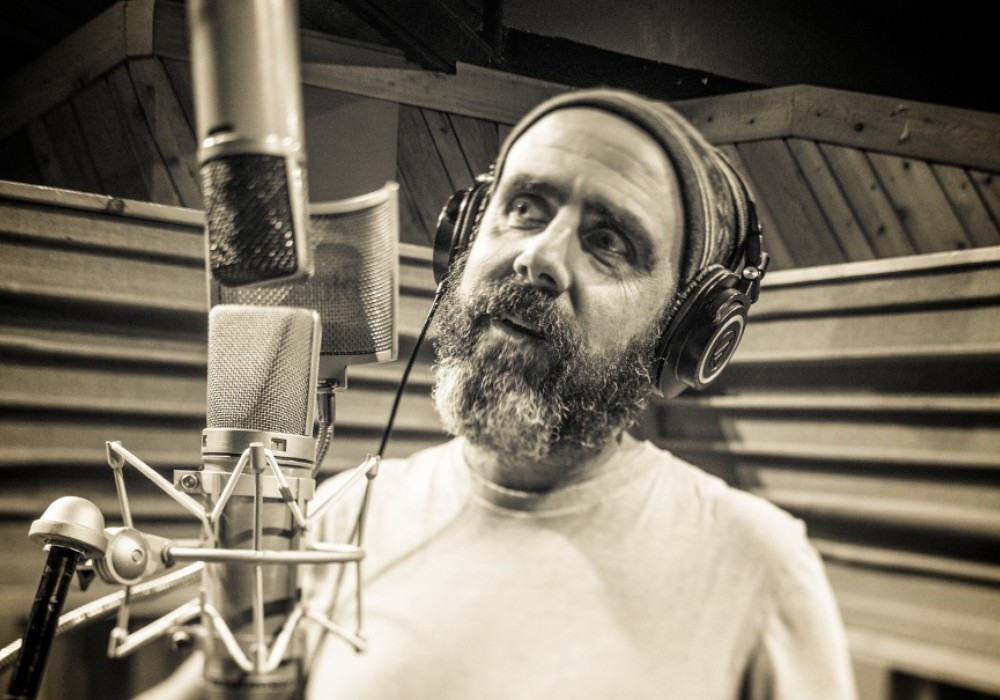Decades after the rise (and, arguably fall) of the B- 52's and R.E.M., the reach of the rock and roll Bethlehem that is Athens, Georgia can still be felt in contemporary pop. In 2005 the perennial critical darlings of the Elephant Six Collective, the town's musically incestuous conglomeration of resident bands and buddies, traded in The Apples In Stereo as a figurehead for the late Neutral Milk Hotel [Tape Op #11], which enjoyed an enormous rebirth with the reissue of In the Aeroplane Over the Sea. More recently the torch has been passed to Kevin Barnes from Of Montreal, a band- turned-solo-project which can alternately resemble either an Ouija connection to Beatles departed or an orchestra made of Silly Putty. Barnes has reveled in the spotlight, churning out albums which each seem to go over better than the last.
What was it like making records in Athens?
It was a really great community, a time when everybody would help each other out with recording. If you had some crazy vision where you wanted to hear what it would sound like if fifty people were playing snare drums at this one section, you could get fifty people together and do something like that, or sing-a-long choruses with thirty people. Elf Power, for one of their records, got this room at the University [of Georgia] and everyone brought a drum or whatever percussive instrument and they set up a couple of room mics and recorded it. We did stuff with fifteen guitar players playing the same part on acoustic guitar around this one microphone. When you have ten or fifteen people playing trumpets it doesn't matter if people aren't really good at the instrument. There's an interesting record called Major Organ and the Adding Machine. That's sort of the most collaborative project involving Elephant Sixers, or at least people from Athens that were involved in that scene. There were a lot of people contributing songs to the record, and everyone was collaborating on the arrangements and the orchestration and the recordings. It was kind of the high water mark of that scene.
Was the studio activity an important part of Athens turning out the way it did? Could that happen without people there to record it?
Then I guess it just becomes legendary, where people who were involved in it might talk about it, but it's not really the same because there's not documentation. Everyone was just learning the ropes on their own, on their own time, without having to spend a shit-load of money going to middle-of-the-road, boring studios with a guy with no vision engineering and recording. That's what happens to a lot of people — their first demos are just so boring because they just didn't know any better. But we were able to experiment and do all sorts of crazy stuff which no engineer probably would have let us do.
You've released a compilation of your early 4-track compositions, which were much simpler than the music you're making now. To what degree do you feel like the production is the composition? Can you explain the intersection between the two?
A lot of times a song, when it's just stripped down to acoustic guitar or a couple instruments, can be really extremely boring. But then if you hear a really clever production it transforms the song into something really magical. Since we record at home we're a little bit limited. There's certain stuff that we might have in our head that we'd like to hear, but you can't hear. With us it's all about trying to be as resourceful as possible and use whatever is laying around to try to fill the sound up as much as possible and try to create something interesting.
Has that changed as the albums have become more successful? Do you have more tools now?
With the first five or six records we were building up this analog studio and we had a 16-track tape machine and a pretty big 24-channel mixing console with a lot of outboard gear. But with the last couple records I've been making them more as solo projects, and I've just been making them on my computer, not even using any of the stuff that we spent all that money on. Now I've just started composing in the studio and not even doing any sort of preproduction work, just experimenting and turning things into songs that were not even rough ideas when I started screwing around with them.
What did you switch to?
I've been using Cubase and Reason. Recently I've been using Logic a lot more.
How did that change affect the songs?
I'm not really sure if it changed the way I'd want to produce a song or the sounds that I'd want to hear so much, but I think that once I started working with computers one of the reasons I wanted to was that I wanted to start making dancier stuff, like using programmed drums and incorporating more electronic- sounding quality to the recording. I was sort of excited that this new world was opening up to me.
And you used to do more preproduction?
I would write the song on acoustic guitar or piano and sort of labor over the skeletal structure of it, making sure I had all the lyrics right, making sure I had all the changes the way I wanted them before I'd go into the studio. It kind of felt like the song was a little bit old by the time I started recording it. It's more exciting for me to go into the studio, put the headphones on, plug in a couple different instruments and just put down a scratch drum track or a scratch piano track and add onto it piece by piece and see what happens.
What pushed you in that direction?
I think I just sort of hit a wall. I just reached the point where I was just really bored with the retro sounding stuff. It kind of coincided with a transitional period with the band where a couple band members left. And on a personal level things were changing — I got married and moved out of the house that the whole band lived in together, and me and my new wife and my brother got a place together. I put together this little studio in the extra bedroom and just experimented again. I just basically wanted to have fun in the studio like I used to when I was a kid in high school, and just escape to that creative world where nothing else exists except you and your creative spirit.
Did it work? Do you have more fun now?
Well it's cool just because you can work a lot faster. It's also so portable. Traveling has played a pretty big role with the recordings of at least the last two albums — I've been traveling back and forth to Norway and back to Athens — and there were periods where we didn't really have a house. But I was still able to be creative and stay productive, just using a laptop and a MIDI keyboard and a little microphone. To me that's the most important thing about digital recording — you can basically stay productive no matter where you are. You can always set up a little studio and create something interesting.
Does that material make it onto the albums or are they demos that get recreated once you can really set up shop?
I don't think I've ever rerecorded something. I never really go back and say, "I want it to sound bigger." For me it's all about the magic of the spontaneous experience. I don't really care so much about fidelity — it's all about capturing this exciting moment and not really second guessing it so much.
And that's what you were like in high school, too?
It was magic. When I first discovered the 4-track it was so wonderful, so positive for me. I was a bit of a loner, like a lot of musicians are, and my family moved around a lot. We moved from Michigan to Florida when I was in the middle of my junior year of high school. It was pretty hard to start all over again and meet a bunch of new friends. I didn't have the energy or the patience to do it so I kind of just retreated into my bedroom. I loved playing music, I loved playing guitar and I loved writing songs, so when I got the 4-track it was like all these things that I was really into sort of multiplied by seven, or however many times you want to bounce the tracks down. I was really into writing songs — dreadful songs, but I loved it. I'd write a couple songs a day.
That's impressive for a teenager.
They weren't anything. Some of them actually made it onto The Early Four Track Recordings, but nothing spectacular.
So how many boxes of unreleased tapes from that era do you have?
Oh, there's tons. I would fill up ninety-minute tapes all the time. There's a couple copies of it on the web, but it's such crappy quality that it's not even worth listening to.
So you do care about fidelity?
I just want to stay as productive as possible and work as quickly as possible and not get too uptight about things sounding absolutely perfect or capturing this distinct vision that is going to be my legacy. It's all about living really quickly, getting out as many ideas as possible and being as productive as possible. I never finish a record and go, "God, this is my masterpiece." Every record I think, "Eh, it's okay." There's a moment, usually like a couple days or at least like a couple hours after the song is finished where I'm really excited about it. But then it's weird, because that feeling always disappears — it always dissolves.
How long does that take?
Usually only a couple days. But that feeling is what I'm always chasing, that good feeling that comes with working really hard, staying up all night long. I don't have any sense of my body — I'm not hungry and I never know if I have to go to the bathroom — totally in that state of mind where I'm creating. It's almost like a meditative state. And I go to bed at eight in the morning, wake up at three in the afternoon, go up in the studio and listen to what I made. It's almost like hearing it for the first time — it's almost like someone else made it. I really love that feeling. I still get a charge out of it, and that's the thing that I'm always chasing.
Do you focus on your vocals when writing and recording?
I think so. In a lot of ways everything is sort of judged by the voice. When you listen to the radio, the DJ is talking over all of the musical introduction, and he doesn't shut up until the vocal comes in. With pop music I think that the vocal is the most important part — what you're singing about, the emotive quality — but that's the great thing about digital recording: you can take an unlimited amount of tracks and an unlimited amount of takes and try to create something interesting. What I've realized is if you double your voice, even if you're a little bit flat or a little bit sharp or whatever, it just kind of creates this weird, interesting quality to it. You don't have to be the best singer — it's all about having an interesting idea. It's all about being resourceful and using what you got. You don't have to have an amazing studio. You don't have to spend a ton of money to have the material to create something interesting.
You'll go mix in the larger studios though, right?
No. And it's probably a negative for us to some degree. The last three records I've mixed by myself. I have no clue what I'm doing, don't have a good stereo system and don't have an acoustically treated room at all. The speakers were maybe $400. I always get scolded by the mastering engineer.
Will you typically do more takes for vocal tracks than for instruments?
Before we did a lot of punch-ins. With digital recording it's so much easier because you can just run all the way through the song, do that six times and just go through it, muting stuff out, soloing things out, taking the parts you like and just kind of creating a performance out of that. And with guitar parts or bass lines or whatever, I write in sections. I'll just loop the section over and over and over again with the bass plugged in, just experimenting with different stuff. I just focus on each section one at a time, writing the orchestration for the song.
Is that approach something that increased once you started to go more into electronics?
I think so, definitely. The follow up to Hissing Fauna [I'm] thinking of as one long piece with a whole bunch of different movements rather than a three minute song that's going to have a verse that repeats twice and a chorus that repeats twice and a bridge. I'm still sort of arranging the song with all these different instruments and still sort of approaching it from a classical pop songwriting approach, where you're thinking about piano and bass and drums and guitar and then maybe using a weirder sounding instrument — autoharp through a delay or whatever.
Yeah. What's the nuttiest thing you've ever used on a record?
We recorded so much really fun stuff when we were making The Gay Parade and Coquelicot Asleep In The Poppies, it was definitely the spirit of the times to incorporate anything you wanted. I had this clothes dryer that was really noisy, but it still dried clothes, so I kept it forever and it sounded like this insane drummer, this insane marching band. So we recorded that on one of the songs. We had a heating grate in the hallway — if you jumped up and down on it, it had this really cool reverberated sound. We used that on some recordings. We recorded ourselves in the bathroom pretending to have a cocktail party, and you're clinking glasses together. One time we recorded shredding paper as a backing track and all sorts of goofy stuff like that.
I bet you ran some interesting mic setups there.
I've never really gotten into the super techie side of it. For me it's all about being creative. I've never really worried about what kind of compression we were going to use on the dryer.
Now that you're moving in a more electronic direction, where do you find your goofy ass noises? Are you scrolling through patch lists on the computer or are you more likely to be out in the garage taking apart your lawnmower?
Kind of a combination of both depending on what I want to hear. There was one point where the whole process was extremely playful. Anything — every single thing that was lying around the house could be an instrument. Lately I've been working with a slightly different perspective, not really thinking about having these freaky sounds, wanting to make something a bit more sophisticated — not as whimsical and not as playful, maybe as the older stuff was. The slide whistle and the kazoo don't really play a very large role anymore.
I read in another article that you love your new field recorder. What about it gets you excited?
I do a bit of traveling, and especially in a big city there are always really amazing street performers, so it's really cool that you can capture these really magical moments that would just pass you by. It's cool to have a battery powered recorder that you can just wander around and pick up cool sounds and try to incorporate. You can capture some stuff that's really special. It's all about finding interesting samples — they're these one-of-a-kind moments that you have and you're the only person in the world that's going to be able to use it. It's also cool to be able to capture specific room sounds. I started recording pianos in different rooms. That's another thing that's really magical — the sound you get in specific rooms, you'd never really be able to reproduce that in a studio, and the atmosphere around the instrument plays a really large role in the sound of the recording.
Is that why your studio is not acoustically treated?
[laughter] Not really. I'm just kind of lazy to some degree and not really uptight about it. Like I said, for me it's all about just having an idea and realizing that idea, and not really worrying so much about fidelity or all those other things that producers and engineers would worry about.
You're obviously not hung up on equipment, but is there anything you couldn't really work without?
I don't let things slow me down or prevent me from being creative but I do like them. A lot of this super-expensive, high-end gear. You might think that it's going to make this dramatic difference, but a lot of times it just kind of makes a small difference. So it's not really worth the money. I've been using this Beyerdynamic M-88 microphone that cost like $300 and I used it on everything — all the guitars, all the vocals, brass, whatever I record. I use it on everything and it has a really cool sound. I realized that it doesn't really matter — you could spend thousands of dollars on these awesome Neumann mics and I'm sure with everything working together, with a really knowledgeable engineer in a really good studio that actually sounds good, it would make a big difference. But for me in my crappy little bedroom studio, no piece of equipment is going to make it sound like a George Martin production.
So you just throw in the towel on that and make music anyway.
Yeah, definitely. In a way, it's kind of empowering.
